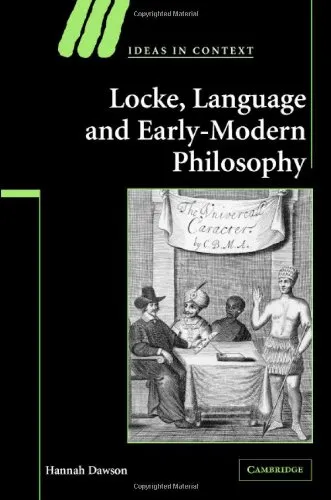Locke, Language and Early-Modern Philosophy
4.3
Reviews from our users

You Can Ask your questions from this book's AI after Login
Each download or ask from book AI costs 2 points. To earn more free points, please visit the Points Guide Page and complete some valuable actions.Related Refrences:
In a powerful and original contribution to the history of ideas, Hannah Dawson explores the intense preoccupation with language in early-modern philosophy, and presents a groundbreaking analysis of John Locke's critique of words. By examining a broad sweep of pedagogical and philosophical material from antiquity to the late seventeenth century, Dr Dawson explains why language caused anxiety in writers such as Montaigne, Bacon, Descartes, Hobbes, Gassendi, Nicole, Pufendorf, Boyle, Malebranche and Locke. Locke, Language and Early-Modern Philosophy demonstrates that new developments in philosophy, in conjunction with weaknesses in linguistic theory, resulted in serious concerns about the capacity of words to refer to the world, the stability of meaning, and the duplicitous power of words themselves. Dr Dawson shows that language so fixated all manner of early-modern authors because it was seen as an obstacle to both knowledge and society. She thereby uncovers a novel story about the problem of language in philosophy, and in the process reshapes our understanding of early-modern epistemology, morality and politics.
Free Direct Download
Get Free Access to Download this and other Thousands of Books (Join Now)
For read this book you need PDF Reader Software like Foxit Reader



